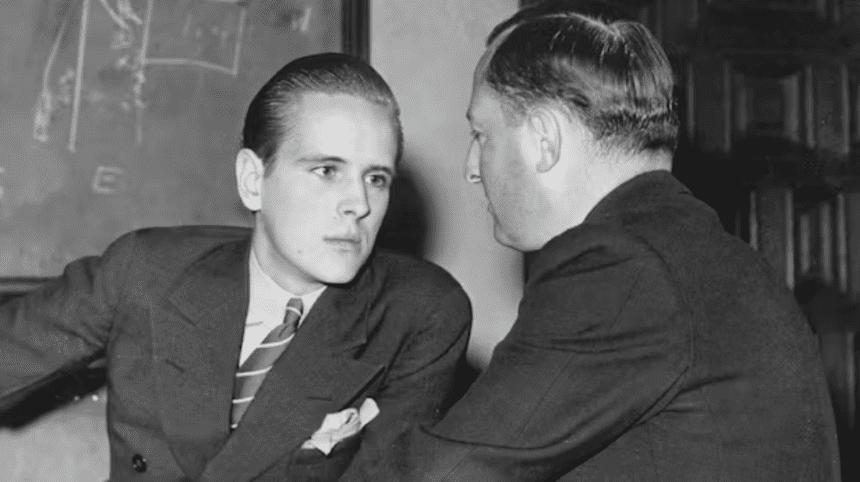To make significant profits, it is essential to capitalize on major market fluctuations. Regardless of the factors that trigger these fluctuations, as long as they exist, the opportunities for significant gains will continue.
This is not the result of insider trading or the manipulations of financial experts, but rather a reliance on fundamental market conditions. Confidence in your own judgment is crucial for anyone looking to succeed in this game. Here are some key lessons I have learned: studying the overall market situation, strategically managing positions, and maintaining persistence.

Unchanging Nature of Wall Street and Human Psychology
Wall Street is an evergreen topic that has fascinated investors for decades. Despite its complexity, the principles that govern it remain relatively unchanged. In fact, the market’s regularity is due to the unchanging nature of human psychology.
One lesson I learned early on in the stock market is that there is nothing new on Wall Street. Speculation is as ancient as the mountains, and what happens in the market today has happened before and will happen again. The only thing I have trouble remembering is when and how it happened. The way I remember it is by utilizing my experience.
Wall Street never changes because human nature never changes.
One’s inability to control emotions is the true enemy of any speculator. Fear and greed are always present, hiding within us. They wait outside the market, ready to jump in and make a big profit. Regardless of when, people always repeat their actions in the same way fundamentally, due to greed and fear, ignorance and hope. That’s why numerical patterns and trends always repeat themselves.
Key to Making Big Money in Trading: Patience and Timing
In the world of trading, patience and timing are the keys to success. It’s crucial to wait for the market to present a perfect trend before making any predictions or entering trades. Timing is everything – buying at the right moment and selling at the right moment is essential.
Trading is not something you should do every day. Those who believe in trading at any given moment overlook an important condition: trading requires valid and objective reasons. Knowing what to do is just as important as knowing what not to do.
Traders must strive not only to determine how to make money but also to avoid losing money. Knowing what you should do is just as vital as knowing what you shouldn’t do.
Successful stock operators must combat many costly enemies within themselves. Making big money requires waiting for the opportune moment when all factors are in your favor.
The difficulty in predicting the market stems from human nature itself. Mastering and conquering human nature is the most challenging task. Carefully selecting the right timing is of utmost importance because acting too hastily comes at a cost.
Patience is Key: Observe What the Market is Telling You
My losses were entirely due to a lack of patience. I didn’t wait patiently for the right moment to support my pre-formed views and plans. It took me 15 years to learn that sometimes I need to wait for an extended period, even two weeks, to feel secure about buying stocks that I believed strongly in when they rose by 30 points.
Patience is key. Wait for the right critical points to appear, wait for the right trading opportunities. Patience, patience, and more patience – this is the secret to seizing opportunities and achieving success. As the saying goes, “It’s not about the ideas; it’s about waiting quietly.”
All a person needs to do is observe what the market is telling them and react accordingly. The answers lie within the market itself, and the challenge is to interpret the presented facts correctly.
Timing is Everything
“Timing is everything.” Before entering a trade, it’s crucial to determine if the minimum resistance line aligns with your trading direction.
Based on my experience, if I don’t enter the market near the beginning of a trend, I won’t profit much from it. The reason is that I miss out on profit reserves.
With the courage and patience to wait, one can calmly observe market changes and hold onto their stocks in the face of small pullbacks or rallies that inevitably occur before the current market trend ends.
The market will timely signal when to enter and exit. If you patiently wait, the market will send you the appropriate signals.
“Rome wasn’t built in a day,” and significant trends don’t end in a day or a week. They take time to complete their logical processes.
In many instances, Livermore held onto his cash, waiting for the right market conditions. His success often stemmed from his ability to observe patiently and wait until the ideal opportunities presented themselves.
When opportunities arise and numerous favorable chances appear, that’s when he strikes like a cobra, swiftly and decisively.
A crucial aspect of my later trading theory is to only trade at critical points. As long as I have patience and trade at these critical points, I can consistently make profits. I also believe that a significant portion of a stock’s trend often occurs in the last two weeks or a longer period of a particular market move.
However, it’s essential to remember that if a stock doesn’t behave as it should after crossing a critical point, it is an immediate and significant danger signal that requires attention. If I lose patience and don’t wait for the critical points to appear, instead opting for easy money, I will surely lose.
Finding Trading Volume
Another factor to note is that when a market trend is nearing its end, there is a significant increase in trading volume. This is often a genuine distribution phase. The stock transitions from strong hands to weak hands, from professional traders to ordinary investors.
Ordinary investors often view a substantial increase in trading volume as a sign of a healthy and active market following a normal adjustment, either towards higher or lower prices. However, this view is unfounded.
I want to make it clear to those who consider speculation a serious business that wishful thinking must be eliminated. People who expect to speculate every day or every week will not find success. You need to limit the number of trades you make, perhaps only four or five times a year.
Before entering a trade, you must wait and have the patience to wait until as many factors as possible are in your favor.
Patience can lead you to profitability. Avoid predicting or estimating when the market will move in a particular direction; it is highly risky.
You must wait for the market or a stock to show a breakthrough. Don’t estimate! Wait for the market to confirm! Don’t argue with the quotations. Cash has been, is, and will always be king.
In fact, it is often those who patiently wait for the right moment to enter a trade, those who hold onto their cash until suitable opportunities arise, who make big money. Patience, patience, and more patience are the keys to success. If a savvy speculator understands this, time becomes their best friend.
Master the art of entering the market at the right moment. Time is not money because, sometimes, even if you enter the market early, you may not make a profit. Time is time, and funds are funds. Funds must enter the market at the right time to earn money. Patience, patience, and more patience are the keys to success.
Without confirmation from the market, avoid making predictions or taking action. Many times, I, like many other speculators, lacked the patience to wait for certain things to happen.
I am only human and have succumbed to human weaknesses. Like all speculators, I have lacked patience, lost sound judgment, and reversed their positions—feeling hopeful when I should be afraid and feeling fearful when I should be hopeful.
Real trends do not end on the day they begin; they require time to unfold. Remember, stocks will never be too high that you can’t start buying or too low that you can’t start selling. However, after your first trade, unless it generates profits, refrain from making a second trade. Wait and observe. This is when your ability to analyze comes into play, allowing you to determine the right time to start.
The Key to Success Lies in Diligent Research and Clear Thinking
In the pursuit of success, it is essential to distinguish between right and wrong and focus on doing the right things, avoiding compounding mistakes.
Step aside from Danger, Return to the Track if Choose to
A seasoned speculator once shared with me a valuable insight: when I spot a danger signal, I don’t argue with it—I step aside. After a few days, if everything seems fine, I come back. Imagine this: if I were walking along a railway track and spotted a train hurtling towards me at 60 miles per hour, I would jump off the track and let the train pass instead of foolishly standing still. Once it has passed, I can always return to the track if I choose to.
This analogy vividly captures the essence of speculative wisdom that has stayed with me.
Interestingly, most speculators encounter troubles stemming from their inner conflicts, preventing them from having the courage to exit positions when necessary.
They hesitate, and in their hesitation, they helplessly witness the market moving against them by several points.
Study Overall Situation
The obvious course of action is to be bullish in a bull market and bearish in a bear market. It may sound amusing, but I had to deeply understand this general principle in order to implement it successfully. It took me a long time to learn how to trade based on these principles.
Chart analysis is a crucial part of this game, as is starting at the right time and maintaining one’s position. However, my greatest realization is that one must study and assess the overall situation to predict future possibilities.
No longer do I blindly gamble, nor do I concern myself with mastering operational skills. Instead, I focus on achieving my own success through diligent research and clear thinking.
I have also discovered that no one is immune to the danger of making foolish trades. If one acts foolishly, they must pay the price for their foolishness.
Controlling Emotions: A Trader’s Greatest Enemy
The stock market is anything but predictable. It is designed to exploit the majority of people, most of the time. Within the market, two primary emotions dominate: hope and fear. Hope often stems from greed, while fear arises from ignorance.
Unquestionably, uncontrolled emotions are the true enemies of speculators. Fear and greed always lurk within us, waiting to manifest themselves in the market, eagerly anticipating an opportunity for significant gains.
Hope is essential for human survival, but it shares commonalities with its relatives in the stock market: ignorance, greed, fear, and distorted rationality. Hope can mask reality, but the stock market recognizes only facts. The results are objective and final, unyielding like nature itself.
Overcome Hope and Fear
The primary foes of traders always originate from within. Human nature is inseparable from hope and fear. When speculating, if the market turns against you, you hope each day will be the last, and if you don’t heed hope’s call, you will suffer losses far greater than anticipated, even to the extent that it rivals the achievements of great national heroes and conquerors.
When the market moves in line with your expectations, you fear that tomorrow will snatch away all your profits, causing you to exit prematurely. Fear prevents you from earning the amount of money you should rightfully make.
Successful traders must overcome these deeply ingrained instincts. They must alter what can be called their natural impulses. When hope takes hold, they should actually be cautious, and when fear arises, they should embrace hope. They must fear that their losses may escalate, and hope that their profits may increase. Engaging in stock market gambling, as most people do, is undoubtedly a mistake.
Remember, without discipline, a clear strategy, and a simple and actionable plan, investors will fall into the emotional trap. An investor without a plan is like a general without a strategy, lacking a viable battle plan.
Making Big Money in Times of Volatility: Mastering the Art of Investor Discipline
Staying Steadfast in Turbulent Markets:
It is not surprising to find many individuals who jump on the bullish bandwagon during a bull market or those who immediately take a bearish stance in a bearish market. However, it is rare to find someone who can accurately assess the market direction and have the discipline to stay put. I have discovered that this is one of the most challenging lessons to learn, yet it is the key to earning significant profits as a stock trader. Once a trader truly grasps this concept, making millions of dollars becomes easier than when they were oblivious to this principle, merely aiming for a few hundred dollars in gains.
The Challenge of Patience and Confidence:
The reason why many individuals fail on Wall Street, despite their intelligence, is that they lack the ability to stay disciplined. Even when they have a clear and precise understanding of the market, they become impatient or doubtful when the market moves in the direction they anticipated, albeit at a slower pace. Countless individuals who do not fall into the category of complete novices end up losing money because they defeat themselves. They fail to hold their positions due to impatience or doubt.
Seizing Opportunities in Market Volatility:
I have come to understand that to make significant profits, one must capitalize on market volatility. Regardless of the factors triggering these major fluctuations, as long as they persist, there is potential for substantial gains. This is not the result of insider trading or the expertise of financial gurus but rather an outcome based on fundamental market conditions.
Disregarding market volatility and attempting to time the market by constantly entering and exiting positions can be detrimental. No one can capture every market fluctuation perfectly. In a bull market, your strategy should be to buy and hold until you believe the bullish trend is coming to an end.
To do this, you need to study the overall market situation rather than focusing on individual stocks or specific influencing factors. And most importantly, you must forget about your stocks altogether. Permanently forget about them!
The Costly Mistake of Chasing the Last or First Move:
The most valuable lesson anyone can learn is to abandon the pursuit of catching the last or first move. These two moves are the most expensive things in the world of trading. Collectively, countless investors have lost millions upon millions of dollars trying to time these exact points, enough to build a cement highway spanning the entire American continent.
The Power of Self-Confidence and Perseverance:
If you lack confidence in your own judgment, you won’t go far in this game. These are the key lessons I have learned—analyze the overall market conditions, hold onto your positions, and persevere.


